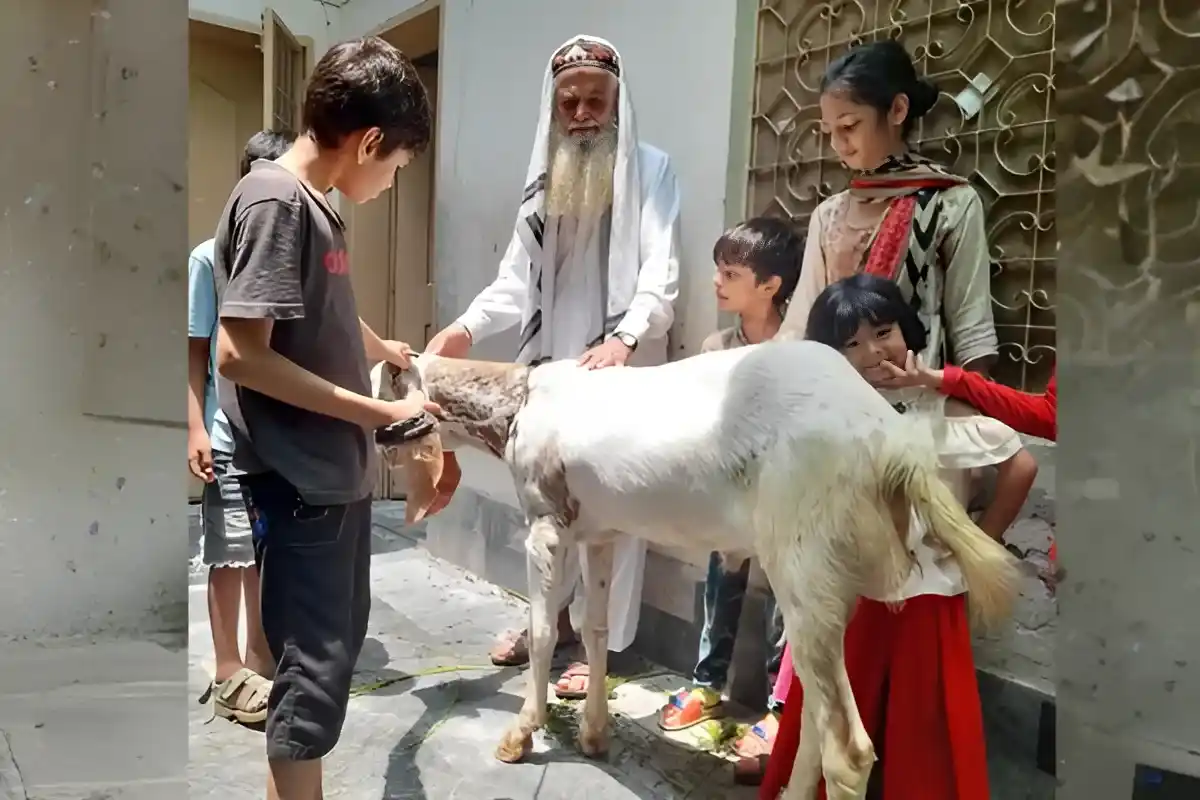Qurbani: A Timeless Tradition with Modern Solutions to Food Insecurity

The tradition of Qurbani, deeply rooted in the Abrahamic faiths, holds a significant potential as a solution for food insecurity, a pressing global issue affecting millions. This ancient practice, especially emphasized in Islam during the Eid al-Adha festival, commemorates the willingness of Prophet Ibrahim (Abraham) to sacrifice his son in obedience to God’s command, before God provided a ram to sacrifice instead. Today, this act of faith is not just a spiritual gesture but also a practical mechanism for social welfare and food distribution.
Qurbani involves the slaughtering of livestock—usually goats, sheep, cattle, or camels—and distributing the meat among family, neighbors, and the poor. This distribution ensures that even the most marginalized members of the community receive a share of high-quality protein during the Eid celebrations. The significance of Qurbani transcends religious boundaries, offering a timeless model for charitable giving and community support.
In the context of food insecurity, Qurbani addresses two critical issues: the immediate need for nutritious food and the fostering of community spirit. By mandating that a third portion of the meat be given to those in need, a third to family and a third for one’s immediate use. The practice directly contributing to alleviating hunger. It’s a poignant reminder of the importance of caring for one’s neighbors and reinforces the idea that those who are better off have a responsibility to assist the less fortunate.
When I began practicing Islam this was someting that stood out to me as a sustainable model for food distribution. The annual ritual ensures a predictable surge in the availability of meat, which can be especially crucial in regions where food insecurity is rampant. This predictability allows for better planning and resource allocation by charitable organizations and communities, making it a cornerstone event for large-scale food aid programs.
However, the potential of Qurbani as a solution for food insecurity extends beyond the mere distribution of meat. It embodies the principles of equity, sharing, and compassion—values that are essential for addressing the root causes of food insecurity. By fostering a sense of community and shared responsibility, Qurbani encourages a more holistic approach to combating hunger, one that goes beyond temporary relief to promote sustainable support networks.
The practice also opens avenues for interfaith understanding and cooperation. As an Abrahamic tradition, Qurbani holds familiar echoes in the charitable and sacrificial practices of other faiths. This common ground can serve as a platform for collaborative efforts in tackling food insecurity, bringing together diverse communities in a shared mission of providing for those in need.
As we gather around our tables, the simple act of sharing a meal becomes a lesson in love and empathy, a moment to remember those less fortunate. This tradition of Qurbani, so rich in history and meaning, whispers to us a profound truth about the power of collective action and the warmth of community care. If we carry this spirit with us, thinking of others each time we sit down to eat, we embody a living model of compassion and support in our daily lives. This mindset, focused not just on personal growth but on the wellbeing of our community, holds the key to unlocking a world where food insecurity and hunger are not the shadows that loom over our neighbors.
Imagine the change we could inspire if each of us adopted this approach, making it a fundamental part of how we live, love, and learn. It’s a vision of society where the lines between giving and receiving blur, where we recognize that by helping others, we enrich our own lives with purpose and joy. This is the essence of a growth mindset, one that sees beyond the immediate to the potential for transformation and healing in our world.Incorporating modern methods of distribution and technology can further enhance the impact of Qurbani on food insecurity. For instance, leveraging online platforms for Qurbani donations allows for greater reach and efficiency in meat distribution, ensuring that aid gets to those who need it most, even in remote areas. Additionally, initiatives that focus on long-term sustainability, such as investing in local livestock farming and infrastructure, can amplify the benefits of Qurbani, making it a linchpin in the fight against hunger.
The tradition of Qurbani is a heartfelt embrace to those caught in the harsh grip of food insecurity. This beautiful amalgamation of faith and generosity offers us a blueprint for building bridges of kindness within our communities, proving that when we come together in spirit and action, we can bring light to the darkest of places. The essence of Qurbani—woven with threads of compassion, unity, and a shared commitment to uplift one another—illuminates a path of hope and solidarity. It beckons us to carry forward these age-old traditions with renewed purpose, adapting them to address the challenges of our time. By doing so, we can weave a future where the specter of hunger finds no shadow to lurk in, and every soul finds solace in the warmth of community care. In the spirit of Qurbani, let us open our hearts wider, and with each act of giving, pledge to ensure that no hand is left unheld, no table left bare.
